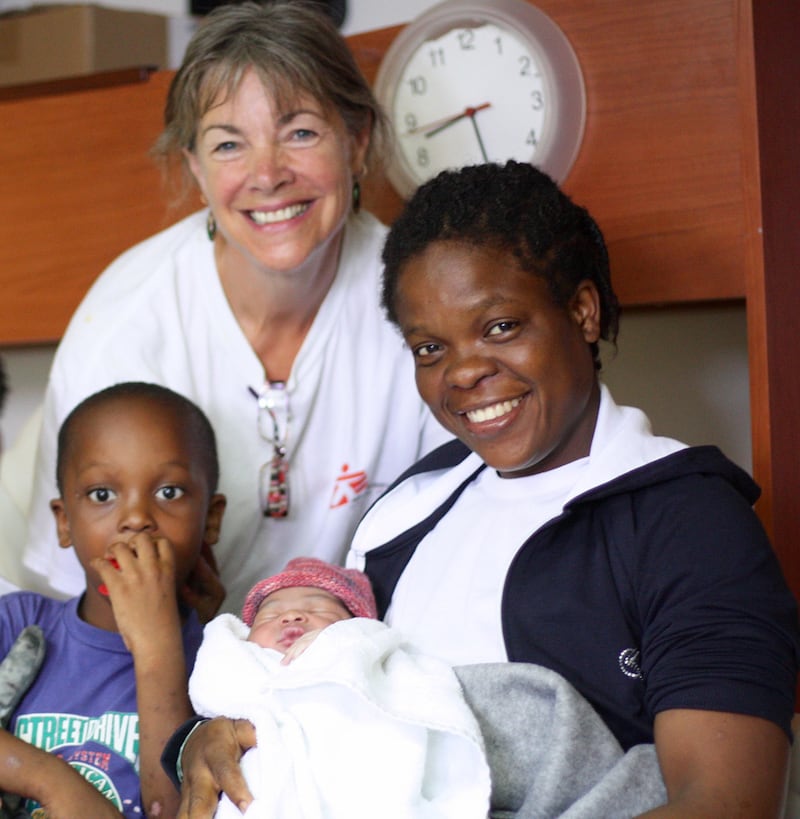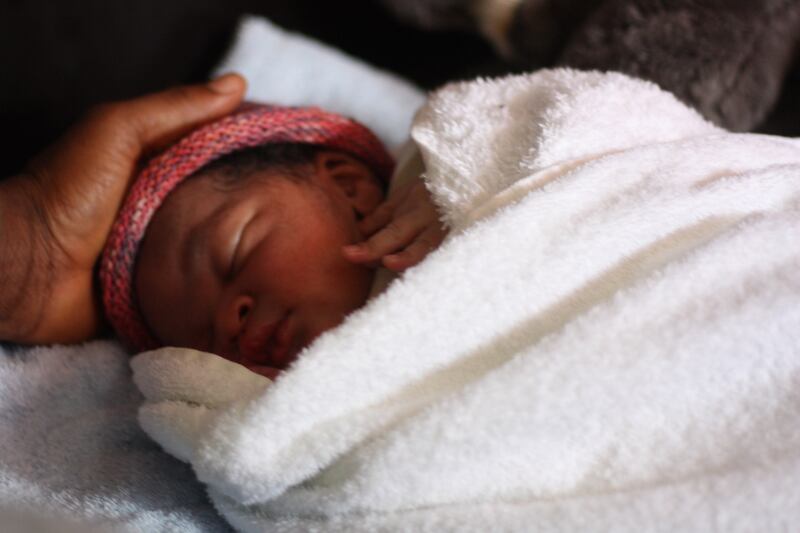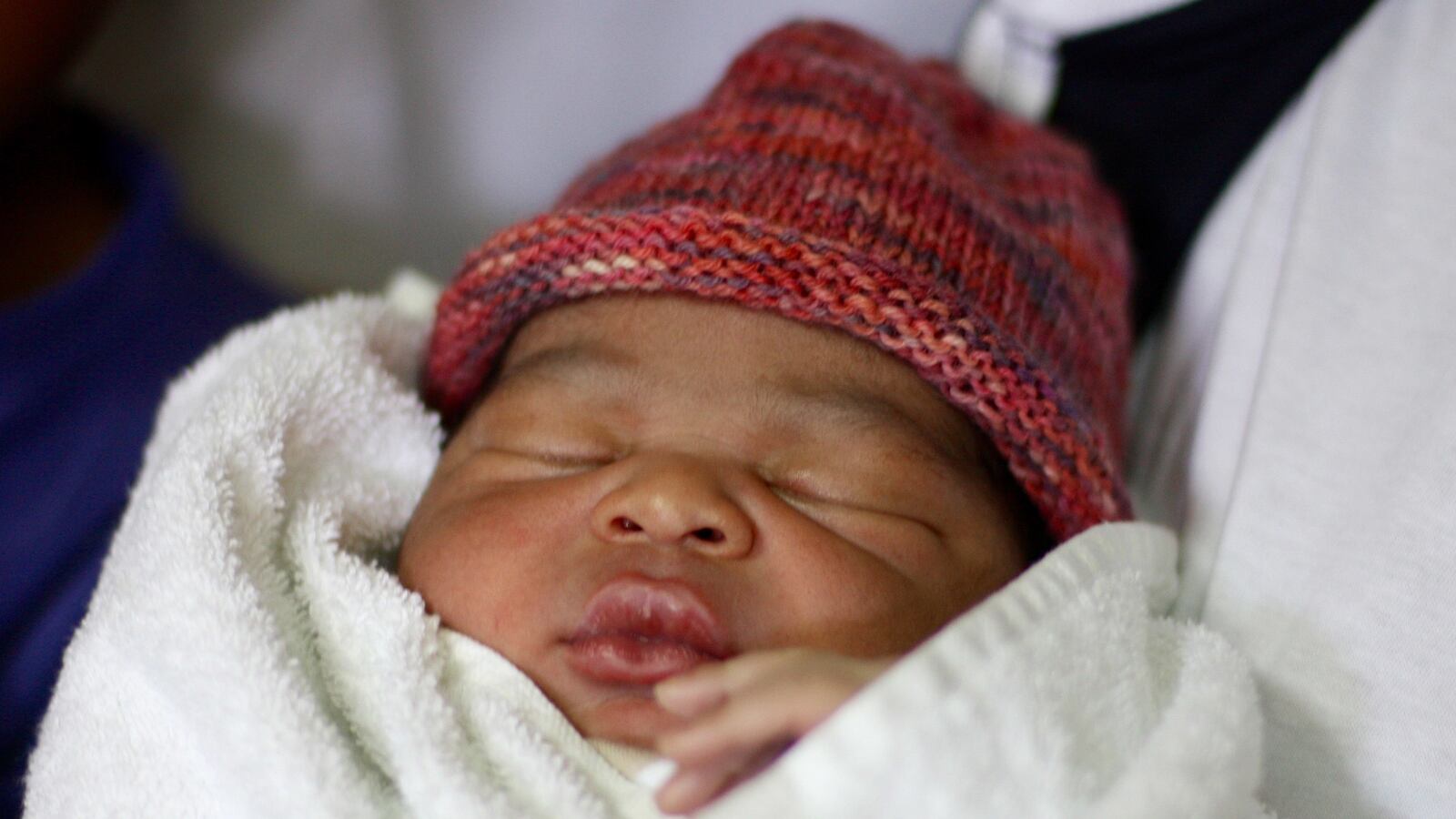ROME — Newman Otas was born somewhere between hell and high water just after 7 a.m. on Sept. 12.
His Nigerian mother, Faith Oqunbor, was already having contractions when she and her husband and their two young children boarded a rubber dingy on the shores of Libya about three days earlier. The human traffickers didn’t care about her maternal health, or about the health of her unborn child. They made them get on the flimsy raft anyway.
Oqunbor was more than ready to give birth by the time the Medecins Sans Frontieres (MSF) Aquarius rescue vessel saved them from sinking in one of 18 separate rescue operations over the weekend that netted another 2,300 migrants trying to get to Europe safely.
She was one of five heavily pregnant women rescued in the same operation that saved her family. And Newman Otas was one of a growing number of babies born at sea this summer, including premature five-day-old Eritrean twins who were born less than two weeks ago and who are still in a hospital in Palermo. At least a dozen babies have been born over the summer within 24 hours of rescue—either on the migrant vessels or rescue boats—according to aid groups who are helping Italy and Greece face the unending crisis.

No one knows how much Newman Otas weighs or how long he is because there is no baby scale or measuring tape on the MSF rescue ship. But Jonquil Nicholl, the midwife onboard for just such purposes, told the BBC’s Lucy Grey, who happened to be on reporting from the MSF ship, she suspected the little boy weighed around 3.2 kilograms, or just over seven pounds. “I am filled with horror at the thought of what would have happened if this baby had arrived 24 hours earlier, in that unseaworthy rubber boat, with fuel on the bottom where the women sit, crammed in with no space to move, at the mercy of the sea,” Nicholl said.
MSF tweeted that it was a “very normal birth in dangerously abnormal conditions” along with several pictures of a perfectly healthy-looking newborn.
His birth certificate, for the moment, is a piece of scratch paper that notes the approximate time of birth, his sex, and the longitude and latitude where he was born, which was just along the edge of international and Libyan waters. That means he was not born in any country, prompting MSF to muse that his nationality is “under discussion.”
He will surely have a right to Nigerian citizenship, like both his parents. But considering the fact that they were escaping their country for reasons yet unknown but which surely range from extreme poverty to fears of Boko Haram, there is little doubt his parents would like him to have rights elsewhere, too.
Because he was born in international waters, essentially no man’s land, he has no claim to any other country’s nationality. Italy does not offer automatic birthright, meaning even if someone is born on Italian soil, they must spend the majority of their first years in the country in order to apply for citizenship at 18 in a bureaucracy-laden process.
Italy has made exceptions to the birthright rule on a number of occasions for refugees, including giving permanent residence to a little girl born last year on an Italian navy vessel and citizenship to a 9-month-old girl named Favour whose mother died at sea who is being adopted by a doctor in Lampedusa. Newman Otas might also have a right to claim French citizenship, since the vessel he was born on had a French flag.
It is little wonder that the birth of a baby in the midst of such despair brings palpable joy for the rescuers who spend long hours in harsh conditions rescuing thousands of desperate people and fishing corpses out of the sea. But such news often brings out the worst in others.

Vile comments filled the MSF Twitter feed under the pictures of Newman and his mother, including one to @MSF_sea from @smhfam that said, “No excuse for endangering a child. All the mother wants is to leech off EU, using the child if she has to. You & media enable this.”
Another horrific tweet—suggesting the baby ought to have been thrown back into the sea—prompted the person manning the MSF Twitter feed to tweet back rather angrily: “Are you really trolling a new born baby? Take a long hard look at yourself.”
Nearly 125,000 people have successfully made the treacherous crossing to Italy so far in 2016, according to the United Nations refugee agency UNHCR. More than 3,000 are known to have died trying to make the journey. At least 15 percent of those who attempt the passage are unaccompanied minors—a figure that also encompasses those who die at sea.
Sadly, at a time when pictures of dead babies like Aylan Kurdi fail to make any difference in the ongoing migrant and refugee saga, it is even less likely that live babies born under truly hideous circumstances will make much more of an impact.






